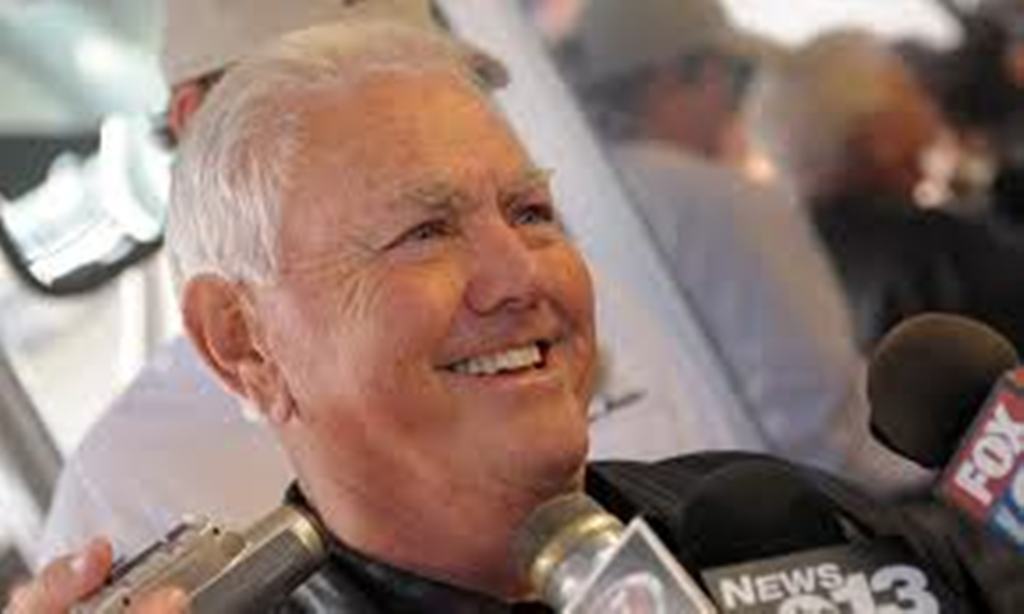Before the start of the 1986 NASCAR Winston Cup season, Junior Johnson was extremely confident that his teams, and drivers Darrell Waltrip and Neil Bonnett, could, once again, be winners and championship contenders.
Waltrip won the championship the year before and Bonnett finished fourth in the final point standings, which made Junior Johnson & Associates the most successful team in NASCAR.
With no significant personnel or sponsorship changes made for 1986, Junior’s teams appeared to be on solid footing.
As buoyed as Junior was over the prospects for the ’86 season, something else happened that was even more satisfying – at least personally.
He received a gift from the President of the United States, Ronald Reagan.
Junior’s contributions to www.motorsportsunplugged.com will appear every other Friday throughout the season.
I have to be honest.
When 1986 rolled around, I was very comfortable and satisfied, professionally.
In 1985, Junior Johnson & Associates won a third Winston Cup championship with Darrell. The team remained intact with the promise of doing even better things in the upcoming season.
I thought things could not be better.
But in early in 1986, they got a lot better – well, personally, that is. What happened had nothing to do with racing, nothing at all.
On Dec. 26, 1985, President Ronald Reagan signed a presidential pardon for my moonshining conviction in 1956 – after they nabbed me at my Daddy’s still and I went to prison for 11 months in Ohio.
The announcement was made on Jan. 12, 1986, a day before the National Motorsports Press Association’s annual convention in Charlotte.
It made all the headlines.
OK, I admit it. I liked that. I wanted all of NASCAR, and the country for that matter, to know.
I filed the request for a pardon in 1981. As the years went by, I never gave up hope, because I was told that it would likely take some time.
Five years later it happened. The pardon was full and unconditional and retroactive to the completion of my sentence. It was a sign of forgiveness. It did not erase the record of conviction or indicate innocence.

Let me tell you that the loss of basic civil rights impacts you in a way you can’t imagine. You come to think of yourself somewhat less than an American citizen. It’s not a good feeling.
The pardon was a tremendous Christmas present for me. I could not have imagined anything better.
I have to admit that it also vindicated me from an accusation that had, for years, prevented my induction into the North Carolina Sports Hall of Fame.
I became eligible for the hall in 1971. But the man in charge of the induction committee, Dick Herbert, who was the sports editor of the Raleigh News and Observer, refused to count any votes cast for me.
He called me “a common criminal.”
It was a long 10 years before I finally got voted into the hall. Don’t know what happened to Herbert but, finally, the votes cast for me by the other North Carolina sports writers were counted.
So with the pardon, I felt I had at last, without question, earned the honor. Reckon I was no longer a “common criminal.”
I didn’t think I could be any happier than to be inducted into the N.C. Sports Hall of Fame. But the pardon topped that.
And I would be very remiss if I didn’t tell you that despite my run-ins with Bill France Jr. over the years, it was his family, along with the R.J. Reynolds Tobacco Co., that helped make the pardon possible.
So at the start of 1986, I was buoyed professionally and personally. I was counting on our teams, with Darrell and Neil, to provide a bigger boost – which, to me, meant winning races and even another championship if possible. That’s what racing is all about, right?
However, the season didn’t start well at all. In the Daytona 500, Darrell did good enough. He finished third in the race, won by Geoff Bodine after Dale Earnhardt ran out of gas with three laps remaining. Terry Labonte wound up second with Darrell behind him.
It was the third year in a row Darrell finished third. That might be a good thing for some owners, but, given what I knew Darrell and his team could do, it wasn’t good enough for me. I knew we were better than that.
For Neil, well, Daytona was a disaster. His Chevrolet had a broken wheel on the 100th lap – now how the heck can you ever figure that would happen? As a result he go into a multicar wreck with Joe Ruttman, Buddy Baker, Harry Gant and Cale.
What a mess. Neil wound up in 32nd place.
To me, it continued what had become an established trend for Junior Johnson & Associates, one I did not like.
It seemed that we always had a championship-caliber team with Darrell aboard. And, although Neil had done some great things (and even was, for a time, better than Darrell), the same could not be said for him.
Don’t misunderstand me here. Neil was a great driver. He performed well for us. He was a great representative for our team and very popular among the fans.
I just couldn’t understand why Neil, along with our team, could not move to a higher level.
I came to the decision that I would concentrate on Neil’s team and its efforts. It seemed to be the logical thing to do. I mean, Darrell and his bunch had long since matched their potential.
But it evolved that in just the second race of 1986, at Richmond, I had to put my concerns for Neil’s team aside.
Darrell and Junior Johnson & Associates – and myself, of course – got involved in one of the ugliest and most controversial finishes in NASCAR’s history.
It was one that played a big role in the outcome of the season.

